The History of Political Songs and Jingles in Tennessee
A Brief History of Political Songs
Music has been a colorful part of American political life since the very founding of our nation. Songs have served to elect, defeat, and make fun of political candidates as well as to advertise for important political special interests such as abolition, temperance, women’s suffrage, or labor issues. Campaign songs have been and continue to be a powerful means of spreading a candidate’s message to a mass audience. In the early years of American politics, political songs provided a catchy, memorable way to advertise a candidate to a relatively uneducated electorate. Early campaign songbooks and broadsides were quickly and cheaply created and set the song’s text to familiar melodies such as “Rosin the Beau,” “The Girl I Left Behind Me,” and “Old King Cole” that most people would be able to easily sing. Campaign songs created by the political parties also focused on a number of common topics to either celebrate their candidates or to disparage the opposition. Songs that trumpeted the candidate’s business or military accomplishments or their ability to pull themselves up by their bootstraps were as popular as pieces that attempted to ridicule or demonize the opponent.
Note: Clicking on each image below will take you to the catalog record for the item in the collections of the Center for Popular Music.
This Fremont Songs for the People songster was printed for the election of 1856 that pitted the first ever Republican candidate John C. Fremont against Democrat James Buchanan and the Know-Nothing candidate, Millard Fillmore. Fremont ran on a platform that argued against the expansion of slavery but he lost the election to Buchanan who supported the idea of “popular sovereignty” that would allow the people to vote for or against admitting slavery in their new territories.
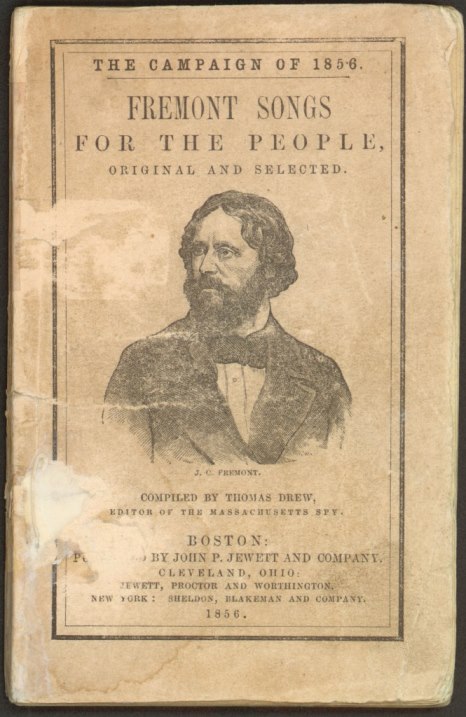 Center for Popular Music
Center for Popular Music
Rare Books and Scores Collection
Item ID: SP-085135
Accession Number: 95-051 Goldstein
Abraham Lincoln was the Republican candidate in the election of 1860. Here are three examples of songsters that were printed to support his campaign.
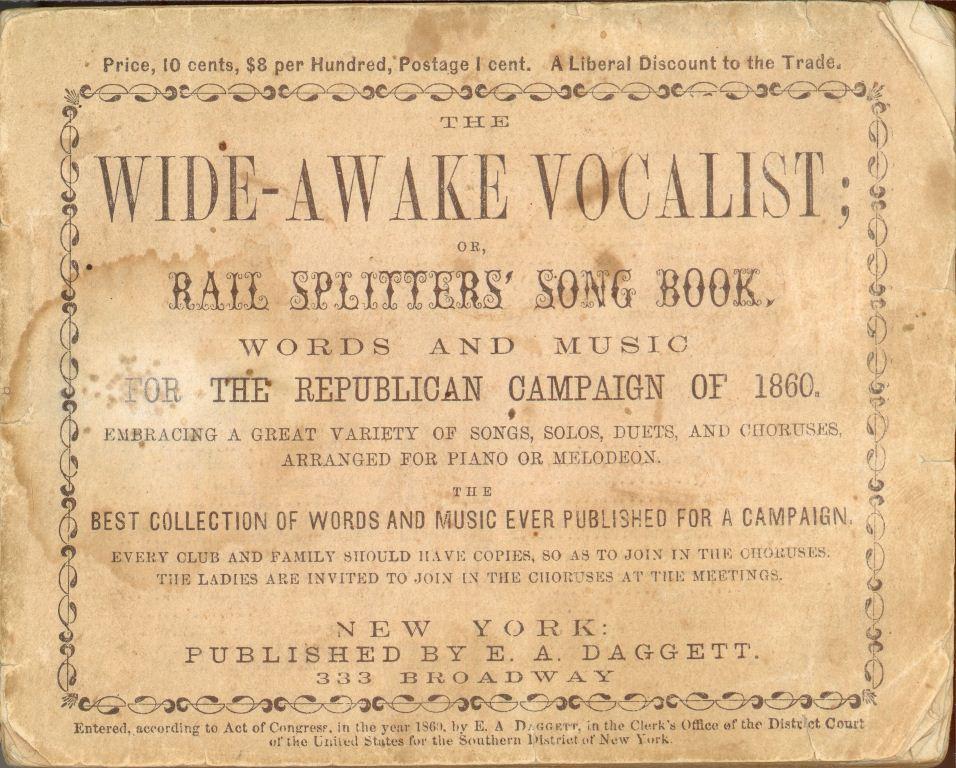 Center for Popular Music
Center for Popular Music
Rare Books and Scores Collection
Item ID: SP-060264
Accession Number: 95-051 Goldstein
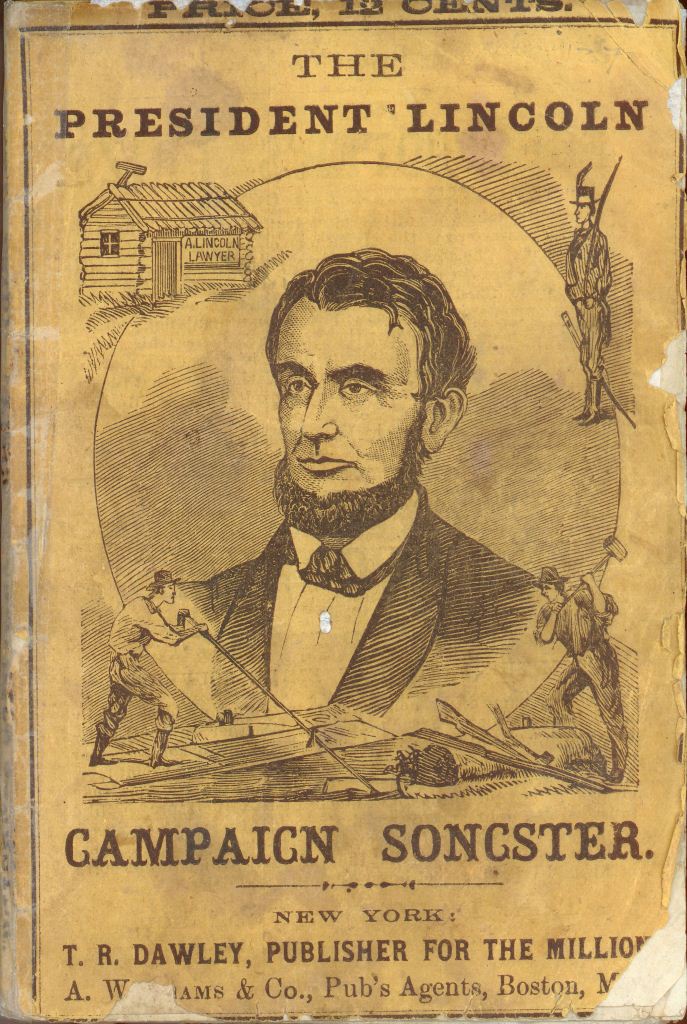 Center for Popular Music
Center for Popular Music
Rare Books and Scores Collection
Item ID: SP-085821
Accession Number: 95-051 Goldstein
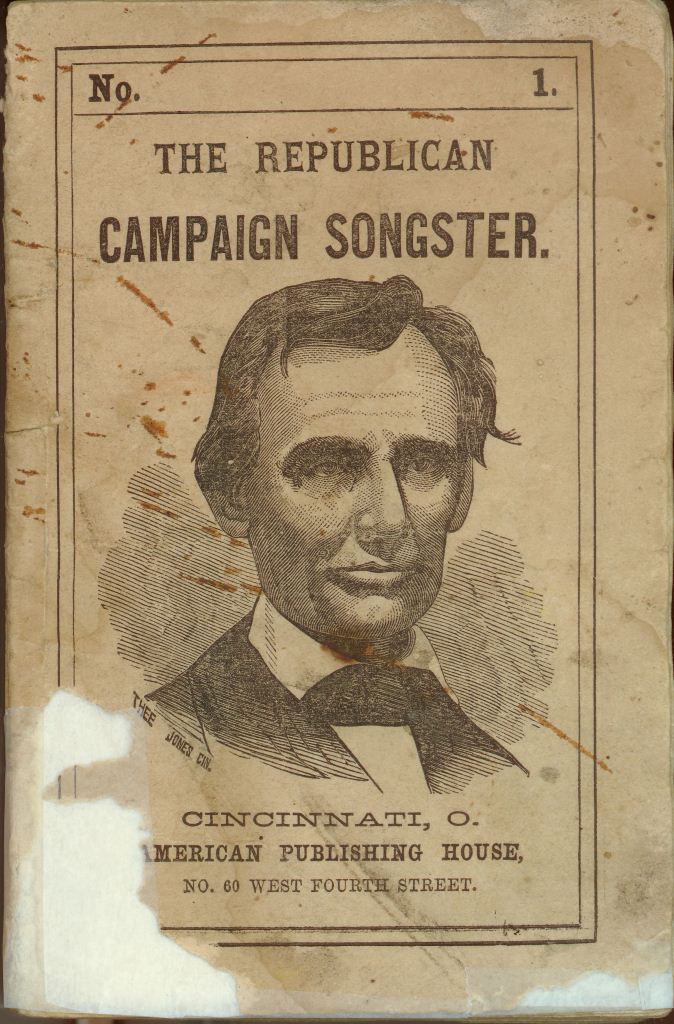 Center for Popular Music
Center for Popular Music
Rare Books and Scores Collection
Item ID: SP-085833
Accession Number: 95-051 Goldstein
Grover Cleveland and Thomas Hendricks printed this songster featuring the images of Washington, Jefferson and Jackson to entice the public to cast their ballots for their ticket during the 1884 Presidential election.
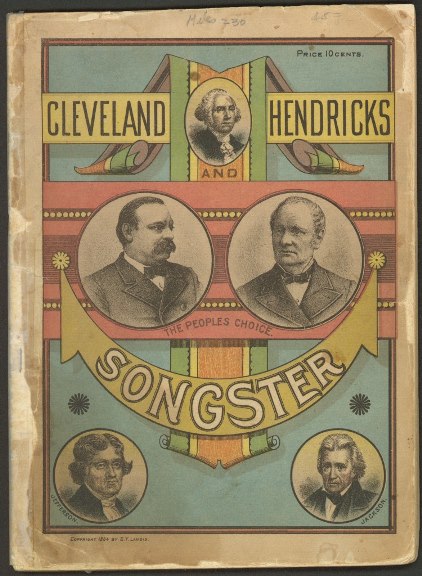 Center for Popular Music
Center for Popular Music
Rare Books and Scores Collection
Item ID: SP-040374
Accession Number: 95-051 Goldstein
Republican candidate Benjamin Harrison and his running mate Levi P. Morton ran against the sitting president, Grover Cleveland in the election of 1888. Cleveland managed to secure a small lead in the popular vote but was ultimately defeated by Harrison in the Electoral College. The colorful songster Harrison and Morton Songster was issued during the 1888 presidential race as was the National Republican Campaign Songster.
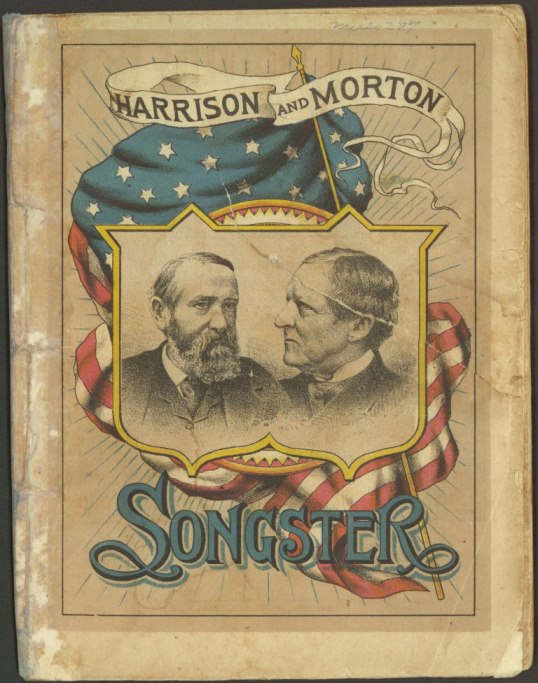 Center for Popular Music
Center for Popular Music
Rare Books and Scores Collection
Item ID: SP-040416
Accession Number: 95-051 Goldstein
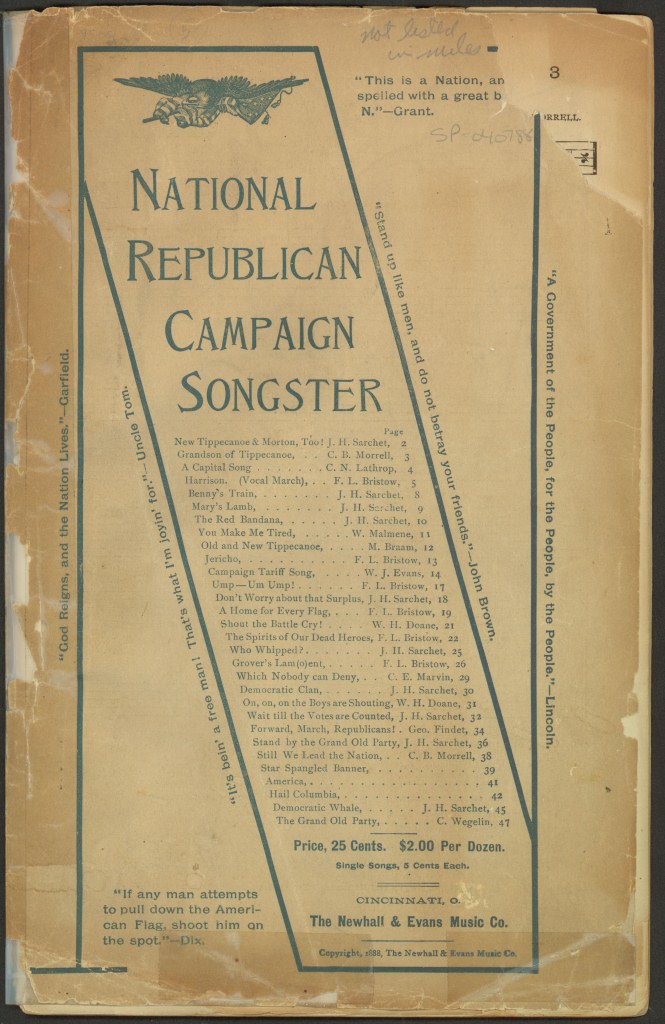 Center for Popular Music
Center for Popular Music
Rare Books and Scores Collection
Item ID: SP-040788
Accession Number: 95-051 Goldstein
This example of sheet music, McKinley Is Our Man, was sold during the Ohio Republican’s first successful campaign against William Jennings Bryan for the presidency in 1896. William McKinley would later be assassinated during his second term in September of 1901.
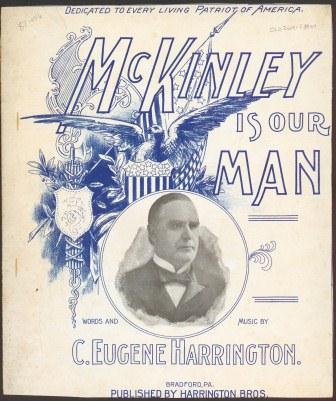 Center for Popular Music
Center for Popular Music
Sheet Music Collection
Item ID: 010264 CPMSM
Accession Number: 87-056 Simpson
Despite having the snappy campaign song Happy Landin' with Landon, Kansas Republican Alf Landon was unsuccessful in defeating Franklin D. Roosevelt in the 1936 presidential election.
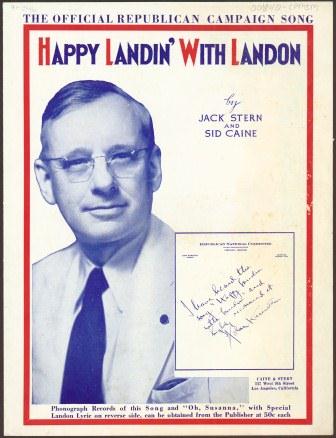 Center for Popular Music
Center for Popular Music
Sheet Music Collection
Item ID: 001840 CPMSM
After losing campaigns for President (1960) and Governor of California (1962), Richard Nixon had a successful political comeback when he defeated Hubert Humphrey and George Wallace to secure the presidency after the 1968 election. Nixon later resigned during his second term as President in 1974 following the Watergate scandal.
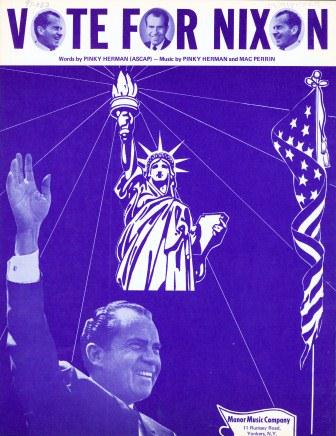 Center for Popular Music
Center for Popular Music
Sheet Music Collection
Item ID: 010818 CPMSM
Accession Number: 97-023 McCuen
Albert Gore Research Center
P. O. Box 193, 1301 E. Main St.
Middle Tennessee State University
Murfreesboro, Tennessee 37132
Main: 615-898-2632
University Archives: 615-898-5202
Director: 615-898-2633
Location
Todd Hall Suite 128
Hours
Monday - Friday
9:00AM - 4:00PM
Or by appointment
Summer Hours
Monday - Thursday
9:00AM - 4:00PM
Friday
Closed



